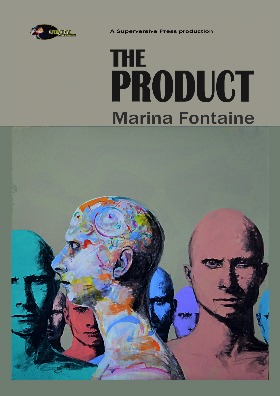Austin Lively has all the makings of a standard YA protagonist, although I suppose being male would make him stand out. He is an all-around loser: unloved by his parents, overshadowed by his successful, better-looking brother, always ragged on by his so-called friends, and too much of a coward to confess his feelings for a girl he likes.Suddenly (yes, "suddenly" is the first word in the book) he is transported into a fantasy world, where he is taken for a hero and compelled to embark of a quest with a help of a quirky sidekick.
The twist in the above? The subject of our seemingly cookie-cutter hero's journey is a thirty-year-old failed Hollywood screenwriter, whose main (only?) admirable quality appears to be a stubborn refusal to give up on an obviously dead and buried dream of his youth.
Andrew Klavan, an award-winning best-selling author who deserves both designations for reasons unrelated to the recent merit-allergic metrics, has made a bit of a splash about a decade ago with a number of YA adventure/action novels aimed specifically towards teen boys. Anyone who knows me at all would not be surprised that I read and liked all of them, in addition to the adult novels Mr. Klavan produced during that period.
It was, therefore, with extremely high expectations, that I started reading this particular work. You could say my expectations were subverted because I only expected an entertaining story, not a trilogy that from Book One started edging up on my list of my all-time favorites, and now is cemented into the Top Ten, if not higher.
I spent a few days trying to articulate why that is the case. The central idea and the plot are not particularly unique. The fact that the author's worldview, which aligns with mine, unabashedly comes through, certainly helps, but philosophical alignment is no guarantee of enjoyment [frowns in the direction of too many conservative filmmakers to count]. The style is at times jarring. I normally love "first person past" narration, but here it's almost like having the camera zoom in and out, from being deep inside the character's head to having him pause to either warn the reader that something important was coming, to explain an action he'd just taken, or to "speak" to the reader directly with comments like "Right?" and "Can you believe it?" Then again, some scenes are so horrific that a bit of narrative distance might be justified, just to give the reader a break.
As an aside, the violence (with more than a touch of horror) is quite intense and feels even more non-stop than it is, in part because the mental/emotional burden placed on the protagonist, both in the real world and in his excursions into the fantasy land, is arguably higher than the physical one.
That last part might be why the story lands so well, and I am surprised to see it come from an author who made a name for himself mostly in noir thrillers.Sure, his recent books have taken on more than a tinge of Christian fiction (without the flaws associated with that genre), but on the whole his characters have been consistently tough-as-nails hyper-masculine men, and even his teen protagonists were well on their way, if not there already. This is more a story of a man discovering his masculinity, or rather reclaiming it from the stifling and corrupting circumstances of his upbringing and surroundings.
Much like Dorothy in The Wizard of Oz, Austin finds his way towards something that has always been within his reach. The fact that he hits several breaking points along the way, each leading into deeper and more complete despair, provides a different kind of realism than we're used to in gritty, "manly" fiction. Our society both demands that men become more "sensitive" and "open about their feelings," yet still ruthlessly ignores, even mocks, otherwise strong men who show moments of vulnerability or need help dealing with grief or trauma. (Witness the Twitterbots' reaction to Kyle Rittenhouse crying during his trial). It is refreshing to see a story that does not shy away from the mental cost of fighting the good fight.
Last but not least, there are quite a few women who guide and/or inspire the hero to become, well, heroic. And what women they are... I'm hard-pressed to find my favorite. The beautiful and courageous Beth, the near-saintly Jane, the ever-elusive Ellen and of course the acid-tongued "squirrel-girl" Maud-- each one is crucial to the story and heroic in her own right, while being exceptionally feminine in ways that modern feminism cannot possibly appreciate.
The villains are both banal and over the top, which rings true to life. I will leave it at that without spoilers, except to say the biggest female villain we encounter can give Atlas Shrugged's Lillian Rearden a run for her money in her utter lack of soul, in both religious and secular sense.
The ending is perfect in being both perfectly satisfying and not entirely conclusive, at least the part that is set in the real world, and that once again rings true. But as I turned the last page, with that special happy/sad feeling that comes after an outstanding read, my first thought was--
"Good Lord, please don't let Klavan sell the movie rights."
Which considering that Hollywood was very much a part of the story, and not in a good way, was quite appropriate.








